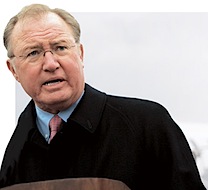
Hello everyone. This week we feel like we’ve been trapped on a tarmac for 7 hours. Or maybe 36 hours. Or maybe longer.
Yes, it’s the biggest earnings issue of the quarter, as we take the microscope to the third quarter earnings calls this week from Delta Air Lines, US Airways, United Continental, Spirit Airlines, and JetBlue.
How long is this week’s issue. Oh, I don’t know. 150 pages more or less.
Needless to say, there is certainly not a lack of things to talk about in this week’s issue, and some of the topics are not even earnings related.
Take for instance, last weekend’s freak snowstorm in the Northeast. I’m sure the folks at JetBlue would love to give it to you.
Once again, the airline found itself the brunt of headlines far and wide after passengers on a number of the airline’s aircraft were forced to sit on said aircraft for hours, and hours, and hours after landing in Hartford. American Airlines also saw one of its international flights diverted there, and all in all, a horrible time was had by all.
Although the governor of Connecticut seemed to think passengers weren’t looking at the situation in the right light. He reminded those who finally did make it inside Bradley International that hey, they landed safely, didn’t they?
We also talk a lot this week about the subject of fuel hedging.
I am convinced that airlines need to stop doing it.
Why?
Because it’s not necessary.
Airlines now have the resources and the planning tools they need to weather the ups and downs of fuel prices. Hedging has become a complicated unnecessary expense.
At least that’s how I see it.
And hey, how ’bout the management team at Qantas? CEO Alan Joyce finally had it last week with the ongoing “mini strikes” and other various efforts by three different employee groups to disrupt the airline’s operations. Saturday, the airline simply shut down.
Brilliant move on the part of Joyce in my opinion.
He knew if he did it, the Australian government would be forced to step in, which it did, and the arbitration court in Australia on Sunday ordered the employees at Qantas back to work — but only after it was made clear that employees were forbidden to participate in any more “mini-strike” job actions.
I can’t recall any airline ever doing anything like this. Ever.
As usual, this is just the tip of the iceberg. This week’s issue is huge, and we’re talking about a lotta stuff.
Subscribers can access this week’s issue of PlaneBusiness Banter here.
